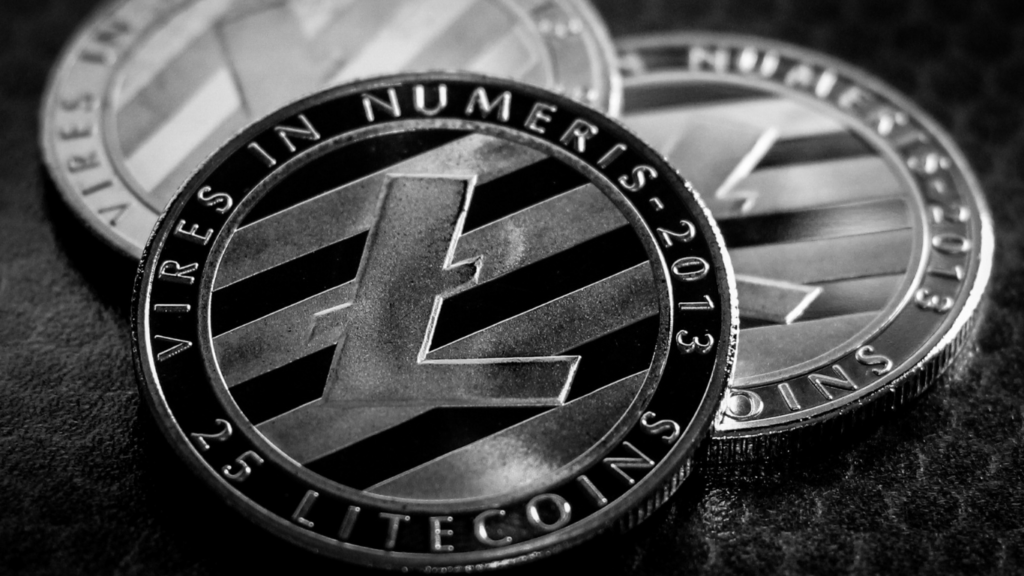Exploring the landscape of gambling unveils a new frontier: decentralized gambling. As a seasoned player in the world of chance, I’ve witnessed the rise of blockchain technology reshaping the way we engage with games of luck. Decentralized gambling promises transparency, security, and above all, fairness in an industry often clouded by doubts of trustworthiness.
In this article, I delve into the realm of decentralized gambling, shedding light on its potential to revolutionize the concept of fair play. Embracing this innovative approach could pave the way for a more trustworthy and equitable gambling environment.
Join me on this journey as we navigate the intricacies of decentralized gambling and explore whether it holds the key to unlocking a future where players can gamble with confidence and integrity.
Exploring Decentralized Gambling
Decentralized gambling signifies a major shift in the gaming industry by leveraging blockchain technology to enhance fairness and trust. These platforms prioritize transparency and security, providing players with a level playing field free from manipulation by removing intermediaries and central authorities. The immutability of blockchain secures transactions and protects player data, addressing concerns prevalent in traditional online gambling.
Using smart contracts, decentralized platforms automate processes, ensuring quick and accurate payouts without human intervention, which minimizes errors and biases. Players can enjoy a variety of games with confidence, knowing that the algorithms are transparent and tamper-proof. Additionally, these platforms promote a community-driven approach, allowing users to influence governance decisions.
The decentralized gambling landscape is ripe with innovation, offering seamless cryptocurrency payments that eliminate currency conversion hassles and international fees. Provably fair algorithms further enhance players’ confidence in the integrity of the games.
Overall, the rise of decentralized gambling has the potential to revolutionize the industry by improving fairness and transparency while fostering responsible and ethical practices. Embracing this technology could lead to a future where players engage in their favorite games with trust and assurance
Benefits of Blockchain in Gambling Industry
Blockchain technology offers significant advantages in the gambling industry, revolutionizing traditional practices. Let’s delve into how these benefits enhance decentralized gambling platforms.
Transparency and Trust
Ensuring transparency and trust is paramount in the gambling industry. With blockchain technology, every transaction is recorded on a public ledger, providing unmatched transparency. Players can verify the fairness of games and the integrity of transactions, fostering trust in decentralized gambling platforms.
Security and Anonymity
Blockchain enhances security and anonymity in gambling. The decentralized nature of blockchain ensures that data is secure and cannot be altered. Transactions conducted through blockchain are encrypted and do not require personal information, offering players a heightened level of anonymity and protection.
Challenges of Decentralized Gambling
Navigating the landscape of decentralized gambling presents several hurdles that need to be addressed to ensure its widespread adoption and success. Let’s delve into the key challenges faced in this innovative approach to online gaming:
Regulation and Compliance
- Challenges of Regulatory Compliance: Decentralized gambling platforms face significant hurdles in ensuring regulatory compliance due to the evolving nature of the regulatory framework surrounding decentralized technologies and cryptocurrencies. The absence of clear guidelines and established regulatory bodies creates uncertainty for both operators and players.
-
Importance of Balancing Innovation and Compliance: While blockchain’s transparency can enhance regulatory oversight, it is essential for decentralized gambling platforms to balance innovation with compliance to build trust and legitimacy in the industry. This balance is crucial for fostering a secure environment for participants in decentralized gambling.
Security and Scalability
Security concerns in decentralized gambling revolve around the vulnerability of smart contracts to coding errors and external attacks. As smart contracts form the backbone of many decentralized gambling platforms, any loopholes or vulnerabilities can lead to significant financial losses and undermine player trust.
Additionally, scalability remains a pressing issue, with blockchain networks facing limitations in transaction speed and processing power. Overcoming these challenges is vital to ensuring a seamless and secure gaming experience for users.
User Adoption and Experience
Driving user adoption in decentralized gambling platforms requires addressing usability and accessibility issues. The complexity of blockchain technology and cryptocurrency transactions can deter mainstream users accustomed to traditional online casinos.
Improving user interfaces, enhancing transaction speeds, and streamlining the onboarding process are essential to attract a broader audience. Providing a seamless and intuitive user experience will be key to cultivating long-term engagement and loyalty among players.
Market Competition and Innovation
The competitive landscape of decentralized gambling is rapidly expanding, with new platforms entering the market regularly. To stand out in a crowded field, operators must prioritize innovation and differentiation to attract and retain players.
Developing unique gaming concepts, introducing novel features powered by blockchain technology, and staying abreast of industry trends are essential to staying competitive in this dynamic environment. Continuous innovation will drive the evolution of decentralized gambling and shape its future trajectory.
Implementing Decentralized Solutions in Gambling
Exploring the implementation of decentralized solutions in the gambling industry reveals a transformative shift towards trustless and transparent practices.
Embracing blockchain technology in gambling ensures that outcomes are tamper-proof and verifiable, setting new standards for fairness and integrity in gaming. Utilizing smart contracts automates processes, guaranteeing prompt and accurate payouts while fostering a democratic governance structure that empowers users in decision-making.
Integrating cryptocurrency payments further streamlines transactions, offering users a seamless and secure payment method. The use of provably fair algorithms not only enhances player trust in game integrity but also sets a new benchmark for transparency in the industry.
Decentralized gambling leverages blockchain’s inherent features to create a level playing field where trust is inherent, significantly enhancing player confidence and overall user experience.
Future Trends in Decentralized Gambling
Exploring the future trends in decentralized gambling, I envision significant advancements that will shape the industry. Decentralized platforms are poised to revolutionize the way we gamble, offering a glimpse into a more transparent, secure, and fair gaming environment. As blockchain technology continues to evolve, here are some key trends that are likely to unfold:
1. Enhanced Transparency and Trust
Decentralized gambling platforms are set to enhance transparency and trust through immutable blockchain technology. By recording all transactions on a public ledger, players can verify the integrity of games and the fairness of outcomes.
This heightened transparency instills confidence in players and ensures a level playing field for all participants.
2. Improved Security and Anonymity
The future of decentralized gambling will prioritize security and anonymity through robust encryption and data protection measures. With decentralized networks safeguarding user data and transactions, players can enjoy a secure and private gambling experience without compromising their personal information.
3. Scalability and User Experience
Scalability remains a focal point for decentralized gambling platforms to ensure seamless transaction processing and enhanced user experiences. Overcoming scalability challenges will be crucial in maintaining transaction speed and efficiency, making gambling activities more accessible and enjoyable for users.
4. Regulatory Advancements
As decentralized gambling gains traction, regulatory frameworks are expected to evolve to accommodate these innovative platforms. Clearer guidelines and regulations will provide operators and players with a more stable and predictable environment, fostering trust and credibility within the industry.
5. Integration of Emerging Technologies
The future of decentralized gambling will witness the integration of emerging technologies, such as artificial intelligence and virtual reality, to elevate the gaming experience further. These innovative technologies will enhance gameplay, offer personalized experiences, and attract a broader audience to decentralized gambling platforms.
The future of decentralized gambling holds immense promise, with evolving trends paving the way for a more transparent, secure, and engaging gaming landscape. By embracing these advancements, players can enjoy a heightened sense of trust, security, and fairness, ushering in a new era of decentralized gambling practices.



 Eriker Welschesters
Cryptocurrency Gambling Advisor & Blockchain Expert
Eriker Welschesters is Pro Gamble Genius's resident cryptocurrency gambling expert, offering a forward-thinking perspective on the integration of blockchain technology with online gambling. Eriker has spent years studying the intersections of finance, technology, and gambling, and his insights have made him a leading authority in the world of cryptocurrency betting. His work focuses on educating readers about the benefits, risks, and practical applications of digital currency in online casinos, including topics like secure transaction methods, anonymity, and the role of blockchain in fair gaming practices. Eriker’s articles help both crypto-savvy readers and newcomers to safely navigate the fast-growing world of cryptocurrency gambling. Dedicated to ensuring that Pro Gamble Genius remains at the forefront of this trend, Eriker continuously explores new developments in blockchain and crypto to keep readers informed and prepared to make the most of their gambling experiences in a digital age.
Eriker Welschesters
Cryptocurrency Gambling Advisor & Blockchain Expert
Eriker Welschesters is Pro Gamble Genius's resident cryptocurrency gambling expert, offering a forward-thinking perspective on the integration of blockchain technology with online gambling. Eriker has spent years studying the intersections of finance, technology, and gambling, and his insights have made him a leading authority in the world of cryptocurrency betting. His work focuses on educating readers about the benefits, risks, and practical applications of digital currency in online casinos, including topics like secure transaction methods, anonymity, and the role of blockchain in fair gaming practices. Eriker’s articles help both crypto-savvy readers and newcomers to safely navigate the fast-growing world of cryptocurrency gambling. Dedicated to ensuring that Pro Gamble Genius remains at the forefront of this trend, Eriker continuously explores new developments in blockchain and crypto to keep readers informed and prepared to make the most of their gambling experiences in a digital age.
